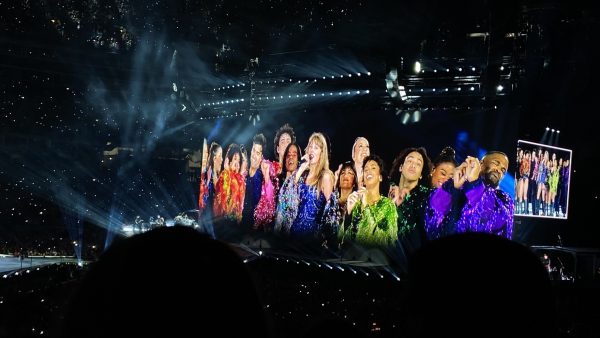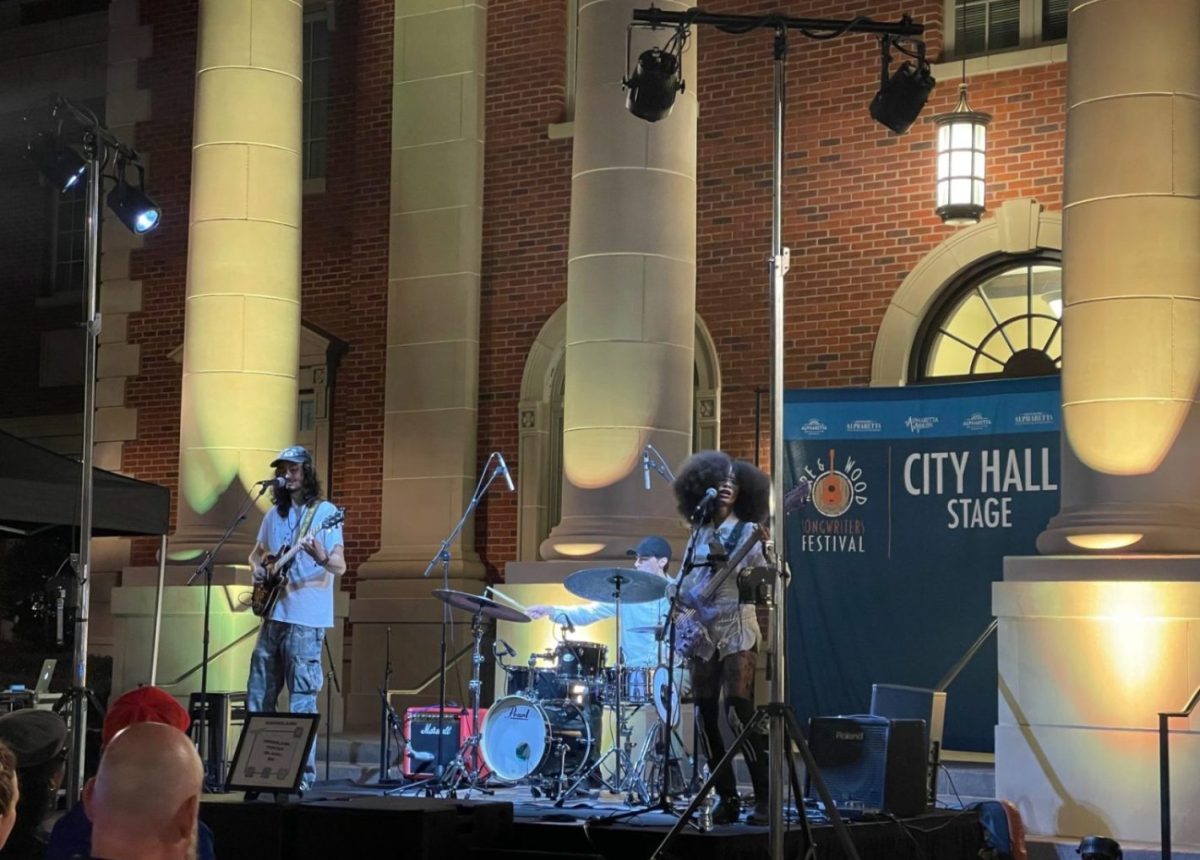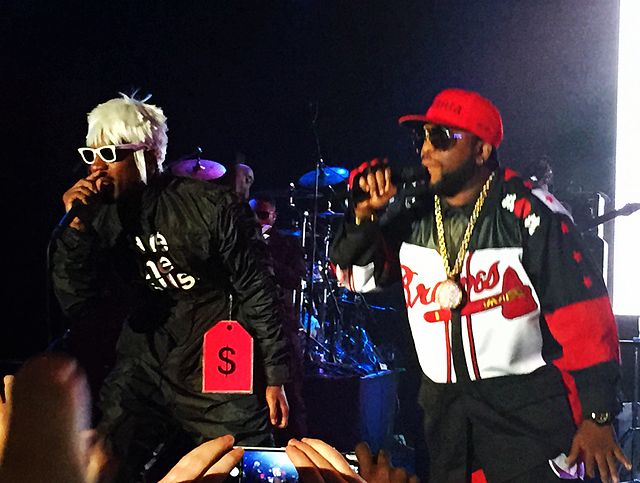Taylor Swift is Time Magazine’s 2023 “Person of the Year.” She was also named the most-streamed artist globally by Spotify with 26.1 billion streams since Jan. 1. According to Forbes, she has a net worth of 1.1 billion USD following her 2023 Eras Tour.
But how did Swift gain and maintain such a massive following?
Dr. Stephanie Rountree, associate professor of English at the University of North Georgia, says, “Setting aside the fact that her hooks and lyrics are incredibly catchy, I think we can attribute Swift’s enormous fandom to her emotional vulnerability. She released her first album when she was still just 16 years old, and her willingness to tap into the emotional experience of those “rites of passage” appealed not only to girls and teens at the time, but also to adult women who shared similar experiences: nostalgia for past summer flings (“Tim McGraw”), breaking curfew to chase love (“Our Song”), and being cheated on (“Should’ve Said No”). Unlike so many saccharine-sweet, teeny-bop, pop stars, Swift has evolved, and thankfully so.”
Now that Taylor Swift is 33 years old, many of her fans have been listening to her music for years, and some have followed her career since its beginning 17 years ago.
One fan, Naumi Vate, political science alumnus, says she began listening to Taylor Swift about 6 years ago. She says Swift is absolutely her favorite artist, and she is in the top 0.5% of Swift’s listeners according to her Spotify Wrapped.
Vate says, “What attracts me to her music is her storytelling and the way she has a song for anything I am feeling in that moment. To her as a person, I think she is just an incredible businesswoman.”
Rountree agrees that Swift’s discography is versatile enough to appeal to the everywoman, from young girls to women in their 30s and above. As Swift’s audience changed and matured, so did her music.
Rountree says, “With ‘Red’ (2012), Swift finally began to write lyrics that would pass a Bechdel Test of pop music. Consider the song ’22,’ no longing for a man, no wishing for marriage, no heartbreak; that song is written for friends about friends. Even in the songs on ‘Red’ that engage with heartbreak, Swift translates her own break-ups into self-empowerment anthems just ripe for belting at top of your lungs while driving with the windows down (‘We Are Never Ever Getting Back Together’). ‘Red’ captures a maturity around love that many women experience as they move beyond the idealism and timidity of their teens into their more confident 20s.”

Because of her lyrical and topical growth, Taylor Swift is known to many of her fans as a feminist icon. Rountree says, “Swift’s most recent albums clearly recognize that love, gender, and womanhood can look all sorts of different ways, each of them equally worthy.”
She says that fans consider songs like “You Need to Calm Down” on “Lover” (2019) or “Lavender Haze” on “Midnights” (2022) as LGBTQ+ anthems, and her current work accounts for how intersectional and collaborative feminism has grown in 2023: “We all know now, we all got crowns.”
Considering Swift’s 2021-2023 re-release of her first six studio albums as “Taylor’s Version”, Rountree says, “These songs became huge not only because they were beloved favorites, but also because Swifties rallied to support the artist’s right to own and control her own masters (e.g., using her own songs as she sees fit). Swift signed that original contract when she was just 15 years old, but now in her thirties, she gets to choose how and when her music is used, full stop. That matters for gender minorities in the 21st century. Gender equality means not only the right to exist on our own terms, but also the right to full self-determination and control over our own destinies.”
Swift also resonates with her fans from an emotional level both personally and through her music.
Vate says, “I think that Taylor’s fans feel emotionally connected with her because that’s what she does in her songs: invoke certain emotions and tell people that it’s okay to feel that way. I mean if Taylor was so down bad for a boy that she was thinking of jumping off really tall somethings then her fans don’t feel so bad about being down.”
Because of this perceived intimacy with Swift, self-identifying “Swifties” have a history of following and becoming involved in the life and love drama surrounding Taylor Swift. In 2017, for example, Swift was involved in a feud with Kanye West and Kim Kardashian. When people began commenting snake emojis on Swifts’ Instagram, Swifties reclaimed the emoji and flocked to the socials of West and Kardashian in droves to spam both snake and rat emojis.
In Simone Driessen’s article “Look what you made them do: understanding fans’ affective responses to Taylor Swift’s political coming-out,” she discusses Swift breaking her political science in October 2018. Driessen outlines how Swift indicated she believed in ‘LGBTQ rights and that any form of discrimination based on sexual orientation or gender is WRONG. I believe that the systemic racism we still see in this country towards people of colour is terrifying, sickening, and prevalent.’
Driessen says, “This explicit reference to LGBTQ rights as an issue of great importance to Swift speaks volumes about her decision on (and suggestion about) how to vote.”
Following this, Swift gave a public disapproval of Tennessee Republican candidate Marsha Blackburn, and Swifties began to spam snake emojis on Blackburn’s official Instagram account. Driessen says, “This fan practice goes a long way to demonstrate the loyalty and the commitment of the Swifties.”
She also says, “The level of investment… is indicated by how fans interpret Swift’s message in certain ways and act that interpretation out, for instance by leaving the snake emoji on someone’s social media account.”
While many celebrities blip in and out of the radar, Taylor Swift has been able to maintain continuous relevance.
Swift’s various transformations and “eras” allow her music and her persona to develop with her growing (in both amount and physical age) fanbase. The community of fans she has built identifies with both the artist herself and her other fans. As a result, many Swifties feel an intimate bond with Swift and anything or anyone she is involved in.


























